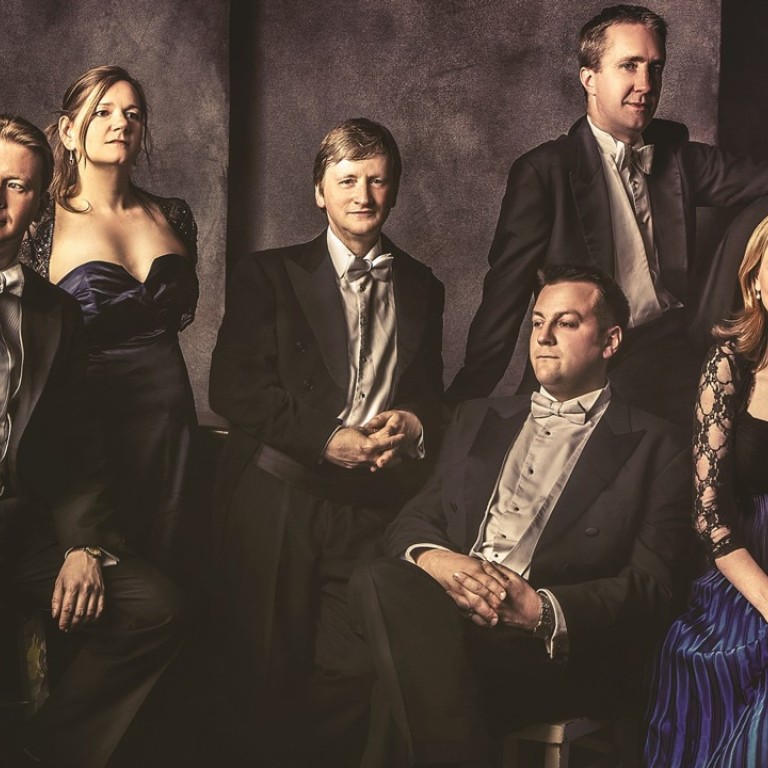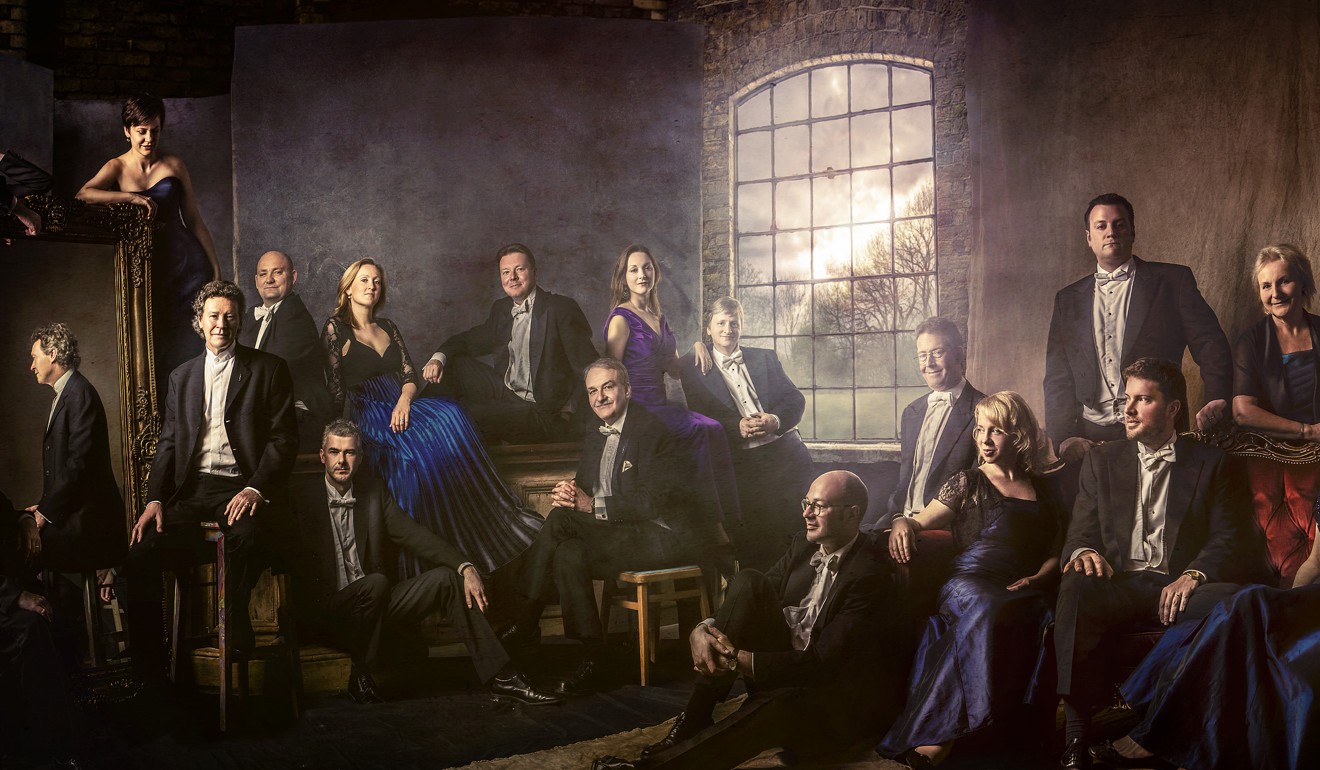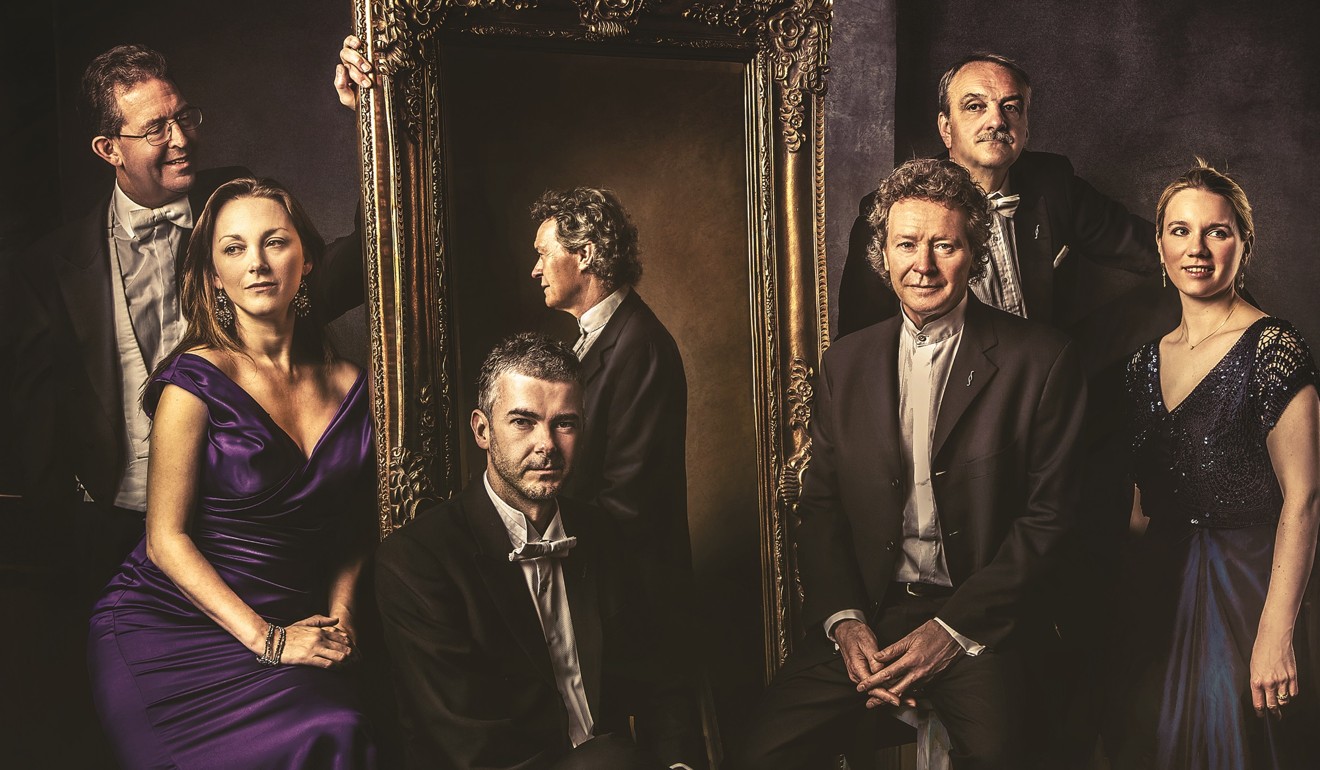
Classical music impresario Harry Christophers has advice for aspiring young musicians
The Sixteen, an acclaimed British choir whose origins date back to 1979, will sing in the City Hall Concert Hall in Hong Kong on October 6
On the day I interviewed conductor, record label director and music entrepreneur Harry Christophers, I tuned in to BBC Radio 3 twice.
Once in the morning, for about 15 minutes as I did my morning exercises, and then again for about half an hour on the drive to Wells Cathedral in southwest England, where the choir he founded, The Sixteen, was to give their annual Choral Pilgrimage concert.
On both occasions, the presenter played choral music sung by The Sixteen.

This choir, which is sometimes joined by a chamber orchestra also called The Sixteen, is big news. It has been called the best choir in England, and for a country with a great and ancient choral tradition, that’s a huge statement.
Christophers was waiting in the lobby of The Swan hotel in Wells, where the choir was staying. He was dressed in shorts, running shoes and a sweater and looked not only relaxed and energetic an hour or so before the performance, but also quite extraordinarily happy.
The Sixteen was formed in 1979 and is in its 38th year. But what advice would he give a young Harry Christophers, about making a career in the competitive arena of classical music?
1. Be authentic. And never imitate
“We’ve all fallen foul in the early days of listening to a recording and thinking wow it’s absolutely amazing. I want to do it like that. And then you do and it’s rubbish because it’s not you. And young conductors I work with … I say don’t listen to a recording; you’ve got to go back to your basics. Read the words, know what they mean. Try and get into the head of the composer. And if it’s Renaissance music look at the shapes it makes.”
2. Have a good name and a strong identity
The Sixteen started as 16 singers – four sopranos, four altos, four tenors and four baritones – though [it] fairly quickly became 18. And then when it added a chamber orchestra, it became much larger. “I wasn’t at all worried when the actual numbers changed,” Christophers said. “It was like being worried that the Monteverdi choir was singing something that wasn’t Monteverdi”. Christophers had thought it was an original idea, and then he bumped into an old friend of his, with whom he had been a boy chorister at Canterbury Cathedral. He said ‘Oh that was a really original name, The Sixteen’ and I said ‘Oh thank you’. And he looked at me and said ‘Come on Harry, Don’t you remember? We were called the Sixteen at Canterbury... It was in my subconscious but I’d forgotten all about it.’ The funny thing is, the choir in Canterbury that had the nickname The Sixteen… there were always 18 of us.”
3. Do something extraordinary
“The turnaround for us was deciding to do the Choral Pilgrimage,” he said. “It started in 2000 as a millennium initiative “and everyone said we were mad; we’d be bankrupt.” At the time, he explained, and to some extent still, there was a sense for many London-based music ensembles that the classical music world in the UK centred around London, and if you were to go outside London it had to be to the big concert halls in Birmingham, Manchester, Liverpool and the Edinburgh Festival.
But Christophers, specialising in sacred music from the Renaissance/baroque period and then the 20th century, had the idea of The Sixteen singing this music in the places it was designed for – and the places that were to some extent designed for that music to be sung: the great cathedrals.
That first year they sang in 10 cathedrals, from York Minster to Canterbury, via Wells, Tewkesbury and other medieval centres. And each year they have expanded to new places.
One of those places this year is Hong Kong, which will host The Sixteen in the City Hall Concert Hall on October 6, with the same programme that will be performed in the great cathedrals.

4. Keep making it new
For a long time, even though The Sixteen was becoming well-known for its Renaissance choral repertoire, Christophers resisted performing work by 16th century Italian composer Giovanni Pierluigi da Palestrina. “The trouble is, Palestrina is such a master that the music’s perfect. Which makes it hard for a conductor to interpret it, because everything is there already.”
But for this year’s choral pilgrimage he is twinning Palestrina with choral pieces of the 20th century French composer Francis Poulenc. It is a programme which sounds like a river of sacred music but which also addresses underlying themes of war. Palestrina in 1570 wrote the Missa L’homme armé – (the Mass for the Armed Man) based on a popular folksong about a soldier.
Poulenc wrote Un Soir de neige, at Christmas during the Nazi occupation of France. It is a secular piece, but it seems sacred, based on poems by surrealist Paul Éluard, which are all about the savagery of war. “It’s interesting,” Christophers said. “What we have seen in the past couple of months is that many people go to hear the Palestrina, which they know they will enjoy. But it is often the Poulenc they come out talking about.”
5. Follow your own instinct
When Christophers started a record label around 2001, many people said he would go bankrupt. It was at the time when the classical music industry was beginning to despair. But today the label CORO has published some 150 discs, most of which are their own, a few of associate groups. “And we are surviving,” he said. “It’s been a good experience.”
6. Help other people on the way
In 2010 Christophers joined John Studzinski at the Genesis Foundation to create a group called Genesis Sixteen. It was set up as a training programme that works with 18 to 23-year-olds and “nurtures the next generation of talented young voices”. “It’s not a feeder group for The Sixteen, he emphasised. But that said, one of the 18 singers came from the Genesis Sixteen programme.
7. Celebrate
In 2010, after finishing their 10th Choral Pilgrimage, Christophers and many of the choir members decided to do a real pilgrimage. They spent several days walking from Guildford Cathedral in Surrey, just south of London, to Canterbury Cathedral in Kent, a journey of about 176km. “A lot of it was over the North Downs Way which was beautiful; we had lunch in pubs and walked and talked. There was no singing; it was about the journey and I tell you it was one of the best holidays of my life.” It was advertised on Classic FM in the mornings and every day there’d be a few people who’d listened in coming to join. “In 2019 we’ll be celebrating 40 years of The Sixteen and I want to do something similar.”
The concert in Wells that evening was exhilarating. The Palestrina was indeed perfect, floating its motets above the great nave of this astonishing medieval sacred building.
But the Poulenc, oh the Poulenc. After the Agnus Dei, led by a soprano voice soaring so high and strong you could almost trace the notes flying and turning above us, my friend (who does not usually use this kind of image) whispered that she felt she had heard the voices of angels.
Christophers was correct. These were the pieces we could not stop talking about.

